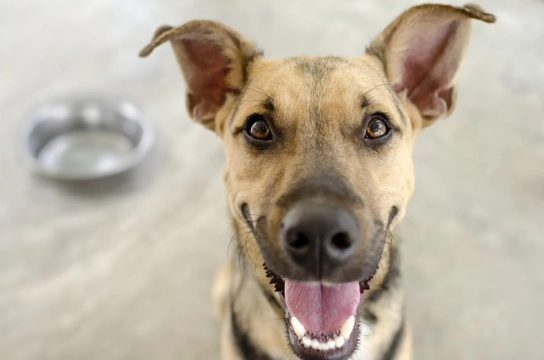
Treatment options for a dog with cirrhosis
Cirrhosis is a condition of the liver that occurs when the liver fails to function in the normal manner, as a result of long term damage. Generally, the condition takes years to develop with few to no symptoms during the early stages of the condition, leading to a range of acute and potentially serious problems, which can prove fatal if left untreated.
Cirrhosis in the dog can be caused by a wide range of liver conditions including infections or diseases such as hepatitis. Treating and managing the condition itself can prove complex, as many medications that would otherwise be viable treatment options also contain toxins, which the already failing liver will have problems handing and breaking down.
If your dog is diagnosed with cirrhosis, you will need to work closely with your vet to decide upon the right form of treatment for your own dog, in order to support the remaining liver function and keep the disease from worsening over time.
In this article, we will look at some of the potential treatment options for a dog suffering from cirrhosis. Read on to learn more.
Dietary changes
Adjusting your dog’s diet to one that produces less stress on the liver is an important part of managing canine cirrhosis, and this will usually mean that the dog will need to be fed a low protein diet for the remainder of their lives.
As the liver is an integral part of the body’s waste filtration systems, any condition that affects the liver will compromise its ability to filter waste products properly, placing additional strain on the already damaged organ. This is part of the reason why drugs and medications can often do more harm than good when treating cirrhosis, and why other forms of addressing the issue such as dietary changes are so important.
A good diet for a dog with cirrhosis is a wet diet, as dry food increases the concentration of waste products from food that the dog’s liver ultimately has to deal with. A low protein diet is also recommended, in order to reduce the amount of work that the liver has to do metabolising complex protein chains.
Foods that are high in antioxidants and amino acids may also be recommended, as help to support the healthy liver function and restore previous damage.
Lactulose
Lactulose is a substance that is sometimes prescribed for dogs with cirrhosis, and is a sugar substitute that acts as a cleanser to the liver, helping with the management of digestive problems such as constipation and placing less stress on the liver than natural sugars.
However, dogs prescribed lactulose may display symptoms including nausea, vomiting and stomach cramps, although in some cases, symptoms will greatly lessen after the initial few days of treatment.
SAM-E supplementation
SAM-E is also known as S-Adenosylmethionine, and is a supplement made from amino acids that convert into antioxidants and other compounds that help to cleanse the liver of toxins, and protect the healthy liver. It also cleanses the rest of the body without placing additional stress on the liver, and helps with cell regeneration, an important part of repairing the liver.
This is often prescribed for dogs with cirrhosis, as it is one of the few medications that are well tolerated by dogs with the condition, and that actively repair the liver without adding toxins.
However, SAM-E can produce a few reasonably minor side effects in dogs treated with it, including diarrhoea and vomiting, and oesophageal irritation. These symptoms tend to be relatively minor though, and often disappear altogether after a few days as your dog’s body has the chance to adjust to the treatment.
Arginine
Arginine is an amino acid that the body of the dog naturally produces, which helps with cleansing the blood and regenerating the cells of the liver. It can also be given as a supplement for dogs with problems such as cirrhosis, and is rich in foods such as tuna, chicken, pork and dairy products.
Carnitine
Carnitine is an antioxidant that supports healthy liver function, and which is present in foods such as meat and legumes. It can either be given as a supplement, or increased by feeding foods that are naturally rich in carnitine.
Conclusion
Generally, your vet will take a holistic approach to managing your dog’s cirrhosis, first of all working to ensure that any medications or foods that will further compromise liver function are removed from the diet, and then working to design a diet and supplement regime that will help the liver to function normally, and improve its natural cell regeneration.
Once you have found the right treatment protocol for your dog, it is important to stick with it, and not remove or introduce anything to or from your dog’s diet without first talking to your vet.



